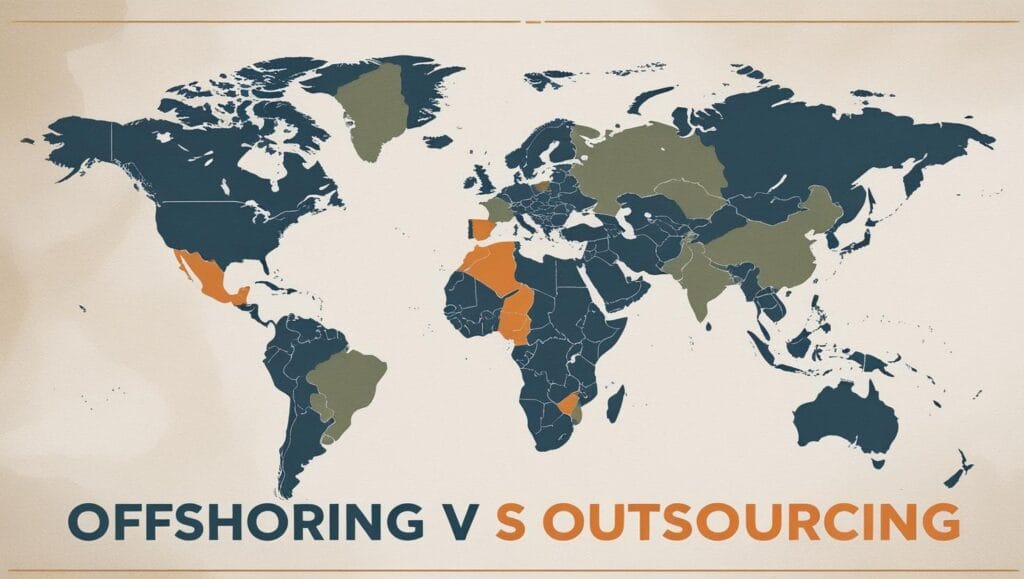Key Similarities Between Bookkeeping and Accounting [2025]
Quick Answer
The core similarity between bookkeeping and accounting is that both deal with financial data and are essential for business financial management. Bookkeeping is the systematic recording of daily financial transactions, while accounting is the higher-level process of analyzing, interpreting, summarizing, and presenting that data. Think of bookkeeping as creating the financial storybook, and accounting as reading that book to write the official report and guide future decisions.
If you’ve ever felt confused about the difference between a bookkeeper and an accountant, you’re not alone. Many small business owners use the terms interchangeably, but that’s like mixing up a chef and a restaurant manager. While their roles are deeply connected and sometimes overlap, they serve distinct functions. However, understanding their similarities is the key to unlocking why your business absolutely needs both.
Both disciplines form the backbone of your company’s financial health. Without proper bookkeeping, you have no reliable data. Without proper accounting, you have no understanding of what that data means for your business’s future. This guide will demystify the relationship between these two critical roles, highlighting their essential similarities to help you build a rock-solid financial foundation.
What is Bookkeeping? The Foundation of Financial Records
At its heart, bookkeeping is about one thing: recording. It’s the daily, methodical process of tracking every single dollar that comes in and goes out of your business. A bookkeeper’s primary job is to maintain a complete and accurate set of “books,” which today is almost always managed using accounting software.
This is a non-negotiable task. Every sale, every purchase, every payment, and every receipt must be recorded correctly. It’s a detail-oriented job that requires precision and consistency. The output of good bookkeeping is a clean, organized, and balanced general ledger, which is the master document of all your company’s financial transactions.
Key Tasks of a Bookkeeper:
- Recording financial transactions (data entry).
- Posting debits and credits.
- Producing invoices for customers.
- Managing accounts receivable (money owed to you).
- Processing payroll and paying employees.
- Paying supplier bills (accounts payable).
- Reconciling bank statements to ensure the books match the bank’s records.
Think of a bookkeeper as a meticulous financial historian. They are documenting the “what” and “when” of your business’s financial life, creating the raw material that the accountant will later use.
What is Accounting? The Big-Picture Analysis
If bookkeeping is about recording data, accounting is about interpreting, analyzing, and communicating that data. Accounting takes the detailed records created by the bookkeeper and transforms them into meaningful insights that business owners, investors, and the government can use to make decisions.
An accountant looks at the bigger picture. They are responsible for the subjective, analytical side of finance. They prepare financial statements, analyze business performance, provide strategic financial advice, and ensure tax compliance. Their work is forward-looking and strategic, designed to improve the financial health of the business.
Key Tasks of an Accountant:
- Preparing and analyzing financial statements (e.g., Profit & Loss, Balance Sheet).
- Performing financial audits and analysis.
- Creating budgets and financial forecasts.
- Managing tax compliance, planning, and filing.
- Providing strategic advice on financial performance, cost management, and growth.
- Ensuring compliance with accounting standards and regulations.
The Core Similarities: Where Bookkeeping and Accounting Overlap
Despite their differences, bookkeeping and accounting are two sides of the same financial coin. Their processes are sequential and deeply intertwined. Here’s where they are most similar:
- Shared Goal: Financial Accuracy and Health. Both roles are fundamentally aimed at ensuring the financial integrity of the business. They work together to create a clear and accurate picture of the company’s financial position.
- Reliance on the Same Core Data. Both bookkeepers and accountants work from the same set of data: the general ledger. The bookkeeper creates and maintains it, and the accountant uses it as the single source of truth for all their analysis and reporting.
- Requirement for Financial Literacy. While an accountant’s knowledge is typically broader and more advanced, both professionals must have a strong understanding of fundamental financial principles, including debits, credits, charts of accounts, and financial regulations.
- Focus on Compliance. Both roles contribute to keeping the business compliant. Bookkeeping provides the organized records needed to prove compliance, while accounting ensures that all reports and tax filings adhere to legal standards like GAAP (Generally Accepted Accounting Principles).
- Use of Accounting Software. In the modern era, both bookkeepers and accountants are power users of accounting software like QuickBooks or Xero. This software is the central hub where data is recorded (bookkeeping) and then compiled into reports for analysis (accounting).
At a Glance: Bookkeeper vs. Accountant
| Aspect | Bookkeeper | Accountant |
|---|---|---|
| Primary Function | Recording & Organizing | Analyzing & Advising |
| Focus | Daily Transactions (The “Past”) | Big Picture Strategy (The “Future”) |
| Output | Accurate General Ledger & Trial Balance | Financial Statements, Tax Returns, Budgets |
| Nature of Work | Transactional & Clerical | Subjective & Analytical |
| Typical Education | Associate’s degree or certification | Bachelor’s/Master’s degree, CPA license |
One Person, Two Hats? Pros & Cons for Small Businesses
For a brand-new startup or solopreneur, hiring both a bookkeeper and an accountant might seem impossible. Often, the owner does the bookkeeping and an accountant is hired just for tax season. Here are the pros and cons of having a single person (or you) handle both roles.
| Pros | Cons |
|---|---|
| Cost Savings: The most obvious benefit is saving money by not paying two separate professionals. | Risk of Errors: Without specialized knowledge, it’s easy to misclassify transactions, leading to inaccurate reports. |
| Seamless Information Flow: One person has complete context from transaction to analysis. | Lack of Strategic Insight: A person focused on data entry may not have the expertise to provide high-level financial advice. |
| Simplicity: It’s easier to manage one person or role, especially in the early stages of a business. | Time Consuming: Proper bookkeeping and accounting take significant time away from core business activities like sales and marketing. |
| Good for Low-Volume Businesses: If you only have a handful of transactions per month, combining roles is manageable. | Scalability Issues: This approach breaks down quickly as the business grows and financial complexity increases. |
💡 My Real-Life Experience: The $5,000 Mistake
When I started my first e-commerce business, I thought I could “save money” by doing the bookkeeping myself in a spreadsheet. For the first six months, it seemed fine. But when tax time came, I handed my mess of a spreadsheet to an accountant. He spent 20 extra hours (at $250/hour!) just cleaning up my records before he could even start the tax return. My attempt to save a few hundred dollars on a bookkeeper or proper software ended up costing me $5,000 in accounting fees.
My lesson: Pay for expert bookkeeping from day one. It doesn’t cost money; it *saves* money. Clean books lead to efficient, cheaper accounting and give you the clarity you need to actually run your business instead of drowning in receipts.
Frequently Asked Questions (FAQ)
Can a bookkeeper also be an accountant?
While a bookkeeper can perform accounting tasks, and an accountant can certainly do bookkeeping, they are distinct roles. An accountant has a broader strategic and analytical skillset, often requiring advanced degrees or certifications (like a CPA). A bookkeeper focuses on the precise recording of daily financial transactions. For a very small business, one person might wear both hats, but as the business grows, the roles typically separate.
Which is more important, bookkeeping or accounting?
Neither is more important; they are sequential and codependent. Excellent bookkeeping is the foundation for accurate accounting. Without meticulously recorded data (bookkeeping), an accountant cannot provide meaningful insights, create financial statements, or file taxes correctly (accounting). It’s like asking if a foundation or a roof is more important for a house—you need both.
Do I need software if I have a bookkeeper?
Yes, absolutely. Modern bookkeeping and accounting are almost exclusively done using specialized software like QuickBooks, Xero, or Wave. The software helps automate data entry, reduce errors, generate reports instantly, and provides a secure, centralized location for all financial data. Your bookkeeper will use this software as their primary tool.
At what point should I hire a bookkeeper?
You should consider hiring a bookkeeper as soon as you find yourself spending more than a few hours a month on your books, or as soon as you feel uncertain about how to categorize transactions. A common trigger point is when a business reaches 20-30 transactions per month. The cost of a part-time bookkeeper is often far less than the value of the time you get back to focus on growing your business.



Comments
Your WordPress theme’s comment section will appear here.